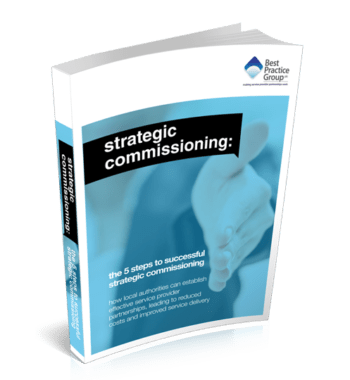 Government support for British business has come in many forms throughout the Covid-19 crisis – always welcome and often significantly beneficial. Network Rail is one public owned entity that is doing its bit to help. It is representative of the win-win benefits many organisations find when they work collaboratively with their strategic partners.
Government support for British business has come in many forms throughout the Covid-19 crisis – always welcome and often significantly beneficial. Network Rail is one public owned entity that is doing its bit to help. It is representative of the win-win benefits many organisations find when they work collaboratively with their strategic partners.
Network Rail’s Offer to its Strategic Suppliers
It may seem like a small thing, but the positive ramifications are likely to be substantial from Network Rail’s announcement in May. It stated it will be supporting its UK suppliers by providing them with written references when they bid for overseas contracts.
There are a couple of prerequisites a supplier would need to evidence before they can submit a request for such a reference:
- References can only be requested by UK suppliers of Network Rail in connection with bidding for overseas contracts or export opportunities.
- Suppliers must have completed a contract with Network Rail or have been working on one for at least 12 months continuously.
The idea is that through improving its supplier’s chances of success in the global marketplace, Network Rail is securing the viability of its own supply chain.
Strategic Supplier Challenges During the Pandemic Period
Many strategic suppliers have struggled during the coronavirus pandemic. Quite a few have furloughed a large proportion of their staff and are now considering whether to permanently downsize as the government scheme comes to an end. Ongoing disruptions to worldwide supply chains, as a result of the widespread impact of the crisis, have meant that even those that continued working have sometimes found it challenging to deliver as a result. Confidence is down, clients are scarce and those that are still continuing with major projects are likely to be nervous of the additional strains on the financial and operational reliability of their suppliers, given the current financial environment.
It is widely recognised that some strategic suppliers who were already in difficulty prior to the onset of the pandemic may not survive the time it is likely to take to get through to the other side.
Network Rail’s Positive Support for Strategic Suppliers
However, what Network Rail is doing is both altruistic and innovatively supporting its own interests by bolstering prospects for its trusted strategic suppliers. This kind of mutually beneficial action often results in greater commercial trust and stronger strategic partnerships, which will benefit everyone.
It has been reported that Minister for Exports Graham Stuart said: “The UK has an array of excellent supply chain companies who have proven their capabilities through Network Rail and international projects across the globe. This new reference scheme will help to showcase UK firms’ experience and expertise to buyers around the world and I am delighted that Network Rail is now offering this support for UK exports. More trade is essential if the UK is to overcome the unprecedented economic challenge posed by coronavirus, and this new scheme will help boost the UK rail sector further.”
They also reported Chief Executive of the Railway Industry Association, Darren Caplan, as saying: “This is welcome news that UK rail suppliers will now be able to get a reference from Network Rail to support them in winning business overseas. Rail is already a vital part of the UK’s export offer – with UK rail goods and services traded across the world – and this support from Network Rail will help the railway industry do even more.”
Citing a few more inciteful benefits, Network Rail’s Clive Berrington said about the referencing offer: “Supporting the UK’s railway supply chain [to] win overseas contracts will help suppliers develop their businesses and ultimately help boost the British economy. This may also help accelerate innovation and drive competitiveness in the sector. We have always worked collaboratively with our supply chain and by offering this support, we are helping unlock the rail supply chain’s future potential overseas.”
This approach results in innovation and competitiveness – two vital facets of any commercial organisation that wishes to maintain its market position or that looks to advance and grow. With the weight of credibility that a reference from Network Rail will bring with it, strategic suppliers will have doors more easily opened to them that may otherwise have taken much longer to do so or remained shut. It provides strategic suppliers with opportunities to work on more exciting international projects and gain a greater breadth of experience.
Five Management Techniques to Master to Build Stronger Strategic Relationships
Commercial trust is a fickle thing: challenging to earn, yet so easy to lose. When adverse issues occur, parties often naturally fall back into a position of blame and defend where the battle lines are drawn by commercial loyalties that can leave trust in the dust.
However, after working with over 500 complex strategic relationships over the years, we can place most trust management issues under five categories. These can be effectively used to keep your strategic supplier relationship strong or to put it back on track.
-
-
Approach and attitude
-
Creation of the right environment to encourage the right behaviours and discourage the wrong in staff on both sides is important. To create a culture with commercial trust at its heart there needs to be true collaboration, a blurring of the lines between organisations so everyone feels like they are on the same team, pulling in the same direction, respecting the roles of the others. Any negative behaviours – finger-pointing, ‘them’ and ‘us’ attitude, bad-mouthing – should be discouraged. When things go well, recognition where recognition is due should occur.
-
-
Perceptions
-
The way you perceive your strategic partner – their motivations, their actions, their ethics – is likely to have an even greater impact on the commercial trust you have between you than the actual approach and attitude of parties. Rumours and perception ‘baggage’ can colour your view of your partners and, therefore, change the way you treat them and think of them, moving you further from the collaboration goal. This can be countered with a better understanding of ‘what is’ rather than ‘what you believe to be’ – open communication, delivering on promises, evidencing worthiness of trust, building understanding of the other.
-
-
Relationship management
-
Buy-in is key here. Are stakeholders at all levels within both organisations equally committed to the relationship? Do they believe there is parity of commitment? If not, look at how you can address this – either as a perception or an actual problem in the relationship. The first step, though, is awareness of the issues.
-
-
Visibility
-
As above, the first step is an awareness of issues and this can only happen with the help of a free flow of information. Good communication lines, kept open at all times, even when the relationship becomes strained, is vital to ongoing action towards repairing any rifts that exist.
Traditionally, this would be the role of an Intelligent Client Function (ICF) team – relationship building with their counterparts in the strategic supplier organisation, gaining deeper understanding of what makes them tick, and identifying early warning signs of challenges in the service delivery.
-
-
Process and escalation
-
Recognition of the need for fairness and equity in the application of both rewards and service credits allowable within your contract and the impact this might have on the existence of commercial trust between parties, is critical. Fail to act when repeated breaches occur and you give the impression that this can be done with impunity; act too harshly or too often and you could move perceptions of your actions further from a fair and appropriate response.
Do both parties respect one another? Do they have an open and honest relationship and are they striving towards common goals? It’s important to monitor your relationship, to identify where it may need to be realigned and to do so in a way that encourages the right behaviours, commitment and trust from all parties.
Conclusion
What National Rail is doing for its strategic suppliers will be seen in the supplier market as a huge tick in the commercial trust box. It is evidencing its support for its UK suppliers and providing them with the means to win more business in tough times. This will not only benefit the suppliers themselves but also National Rail, and will lead to suppliers who become financially stronger, more experienced, and inclined towards greater loyalty in a sector that relies so heavily on the trust it fosters in its supply chain.
We can all work harder every day to build closer relationships with our strategic partners, to develop true win-win environments in which parties help one another towards common goals and aspirations.

